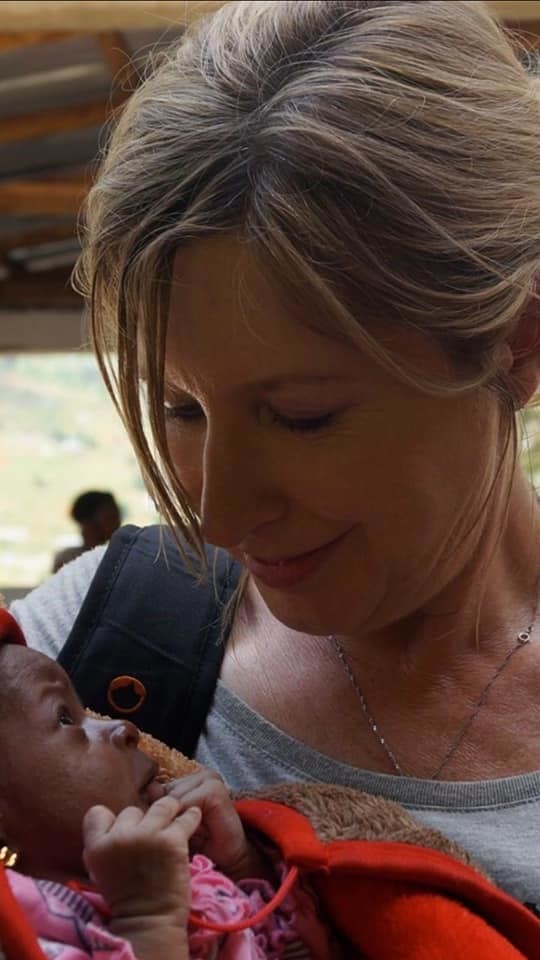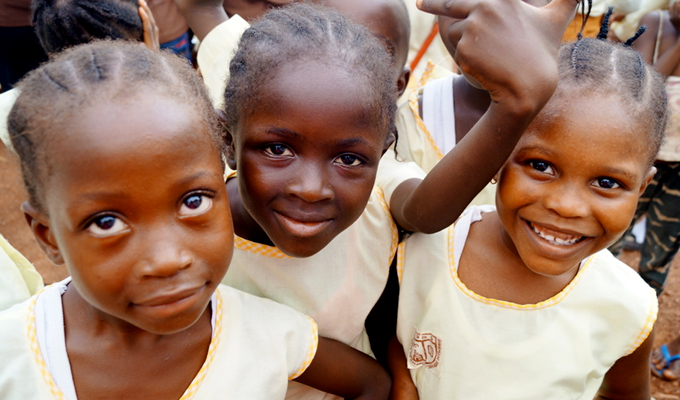People sometimes ask why I’m so committed to Sierra Leone. It’s not a simple question to answer, but I’ll try.
My journey started in 2006. At the time, I was studying development economics, curious about how microcredit was impacting the lives of women in some of the world’s poorest countries, especially how it shaped outcomes for their children. I chose Sierra Leone for my research because of a friendship link between Warwick, where I was studying, and the city of Bo. It was also, at the time, the second poorest country in the world, only four years out of a devastating 10-year civil war (Human Development Report, 2006).
But no textbook could have prepared me for what I witnessed.

Back home, I had a five-year-old son, Harry. Leaving him behind in England with his dad so I could travel to Sierra Leone was tough in itself. But what made it even harder was what I saw when I arrived: a boy, no older than Harry, rummaging through a pile of rubbish, searching for something, anything, to eat or maybe sell. I couldn’t unsee that. The contrast between the lives of these two boys, born into entirely different worlds by chance alone, struck me to my core.
At home, Harry was encouraged to dream big, to take charge of his life and believe in a bright future. In Sierra Leone, most children don’t get that chance.
The challenges go far beyond poverty. As a psychiatrist friend, Dr. Roberto Ravera, once explained to me, “many Sierra Leonean children grow up in an environment of violence, trauma, and neglect. Their emotional development is shaped by mistrust and survival. Love is not a given. Joy is fleeting. For some, their perception of the world—and of themselves—has been damaged by years of hardship.
This lack of system brings many of them to disenchanted, destroyed and hopeless lives. While we know that people like that are everywhere, in Sierra Leone it is an even stronger challenge because you realise this lack of a system is the reason many children are abused, maltreated and quite often neglected.” Roberto’s research shows that many of these children live with a distorted emotional lens. Their ability to connect, to trust, and to reflect is impaired by early adversity. It’s heartbreaking, but it’s not hopeless. And that’s why I keep going back.
Every child we enrol in school, every young person we support through university or training, every caregiver we stand beside, this is our way of pushing back against that despair. Bit by bit, we’re helping build something better.
Since 2015, The Fig Tree Children has supported dozens of children and young people. Right now, we’re walking alongside 83 of them. These young people have an opportunity to rewrite their future, one that wouldn’t exist without our support.
I often feel overwhelmed. But when I do, I think of the story of the starfish.
A young boy walks along the beach after a storm, picking up starfish stranded in the sand and throwing them back into the sea. An old man tells him it’s pointless, as there are far too many, that he can’t possibly make a difference. But the boy throws another one back and says, “Well, it made a difference to that one!”
We can’t fix everything. But we can make a difference to someone.
That’s why I do what I do.
Jane ❤️
References:
United Nations, 2006. United Nations Development Programme. Available at: http://hdr.undp.org/en/content/human-development-report-2006


Wow,hi Jane, I’m a Sierra Leonean leaving in the United States.I want to thank you for the great work you are doing in Sierra Leone.I’m proud of you,may Allah guide and protect you and your family. Please stay safe.
Hi Abu
Having a great team helps, on the ground in Sierra Leone and here in Brisbane, Australia. We also have some wonderful support from sponsors and donors and wouldn’t be able to do what we do without them. Let me know if you’d like to learn more. Thank you for your kind words.
x jane